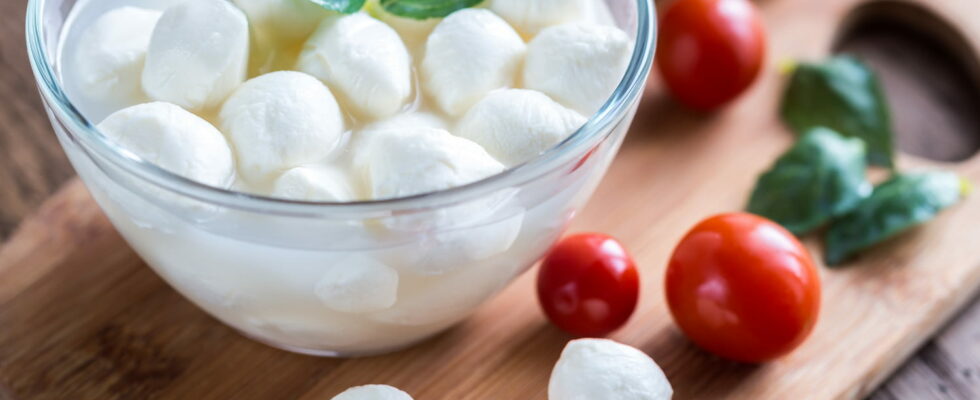It’s loaded with super heart-healthy protein.
Mozzarella is one of the cheeses that we love to eat in the summer, accompanied by tomatoes or on bread with a little olive oil. But if it is not one of the most calorific and fatty cheeses (almost half as calorific as Comté), you should not overdo it… The golden rule to avoid gaining weight: “consume it in moderation”, i.e. about 30g or 1/4 ball maximum per day (and not in addition to other cheeses of course).
According to cardiologists, this cheese is also beneficial for the heart.Cheese can be part of a heart-healthy diet. And the best one for me is mozzarella because it is lower in saturated fat and salt than other cheeses.“, said Dr. Cheng-Han Chen, a cardiologist interviewed by the American media Parade.
Even better for the heart, this part of the mozzarella that we tend to throw in the sink… Once we remove the mozzarella ball from its packaging, a sort of milky and whitish liquid remains that allows the cheese not to dry out. Called “whey”, this liquid composed of 93% water is a nutritional gold mine: it is rich in calcium, phosphorus, vitamins B1, B2, niacin, zinc, vitamin E, and probiotics, ultra beneficial for immunity and the proper functioning of organs. Above all, it is very rich in specific proteins, which regulate blood pressure, a risk factor for cardiovascular diseases.These whey proteins have the ability to inhibit the angiotensin converting enzyme, involved in the ability of arteries to contract, and therefore promote high blood pressure.“, suggests a Japanese study published in the journal Bioscience, Biotechnology, and Biochemistry.
A other study conducted by researchers from the University of Cambridge and published in the British Journal of Nutrition showed that whey protein also had an effect on bad cholesterol (LDL cholesterol) and triglyceride levels, particularly in people with mild high blood pressure, or in people who were overweight or obese.Their high content of branched-chain amino acids (BCAAs) could be the key: these amino acids are in fact involved in the intestinal absorption of fatty acids and cholesterol, which could therefore explain the clinically observed decrease in these parameters.“.
Concretely, the idea is not to drink bowls of mozzarella “whey”, but to think about it when you open a bag of mozzarella. Rather than throwing away the whey, you can drink it as is or, for example, add it to your vinaigrette sauce or quiche mixture.
